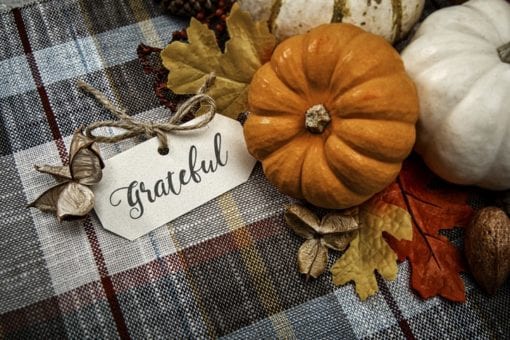Gratitude is More than Just Saying “Thank You”
There are many ways to express gratitude outside of just saying thank you when you’ve been helped. For instance, you can say that you’re thankful, but you can also journal your gratitude. Some people have reported that they experience greater levels of optimism and overall satisfaction with their lives, in addition to improved physical health and lower stress levels when they keep a gratitude journal. Regardless of where you are in your eating disorder recovery, focusing on gratitude during Thanksgiving is a positive step in your recovery journey. Instead of thinking about how Thanksgiving can be triggering toward your disorder, think about why you are thankful to be able to celebrate another Thanksgiving holiday. Reflect on your progress during your eating disorder recovery, acknowledge your support system around you, and recognize the strides you are making in terms of your mental and physical health. Find gratitude in your experience around the table rather than focusing on the food that is in front of you. Notice the hum of conversation around you. Be present with the people sitting next to you at the dinner table and try to engage with individuals who you may not know very well. Ask questions, laugh and enjoy your time with this company. You can also practice gratitude by writing thank you notes to your treatment team, practicing random acts of kindness and volunteering your time at a local soup kitchen or homeless shelter. Remember that expressing gratitude is not just about saying thank you, but it is also about acknowledging and appreciating where you are in life, being kind to others around you and giving back to those in your community.
Remember to Enjoy the Holidays
There is so much literature and talk about how the holidays can be triggering and detrimental for those in eating disorder treatment and although this is true, the holidays are also a special time of year to embrace family and loved ones. Enjoy your time spent celebrating with those who you may not see all the time and take part in holiday traditions that are near and dear to your heart.
Focusing on gratitude, arming yourself against negative food talk and spending the holiday with supportive people can ensure that your Thanksgiving will be spent in a way that takes the focus away from food and supports your eating disorder recovery.
At Center for Discovery, we know that the holidays can be a difficult time for those in eating disorder recovery. If you or someone you know needs extra support, Center for Discovery is here to help. Contact us today.
More from Center for Discovery
